Global Health Seed Fund Projects
2023-24 projects
Learn more about our projects.
Examining Policy

Fanta Waterman, PhD, MPH, RYT, Clinical Assistant Professor in the Division of Community Health Sciences at the School of Public Health, has received seed funding for her research project on women’s health policies and patient experiences in St. Kitts and Nevis (SKN). This study will examine policy frameworks, patient perceptions, and the effectiveness of healthcare resources in SKN. Building on her previous work with Lake Health and Wellbeing and other Caribbean health organizations, Dr. Waterman’s research aims to identify gaps in the healthcare system and explore factors influencing women’s health outcomes, with a focus on access and use of health services.
Dr. Waterman emphasized the importance of this research and expressed gratitude for the support from UIC SPH. Her study will employ a qualitative, multi-method approach to assess perspectives from policymakers, healthcare providers, patients, and caregivers. The goal is to identify opportunities to improve health outcomes and eliminate barriers to care in women’s health in SKN. The findings will inform recommendations for enhancing health systems in the Caribbean and support future grant proposals for broader research across the region.
mHealth Educational Intervention
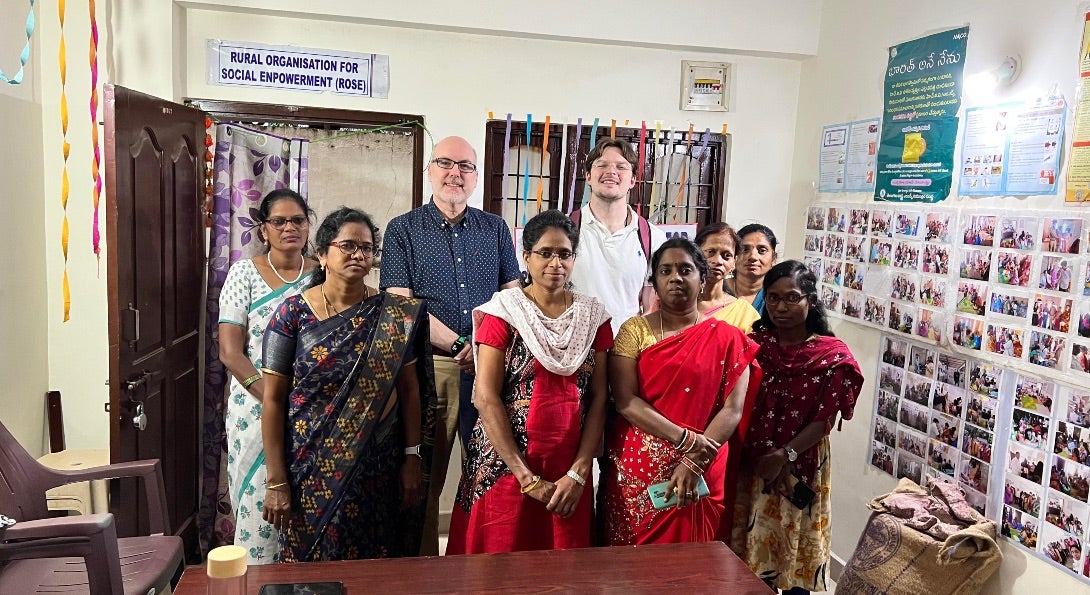
SPH’s Mark Dworkin, MD, MPHTM, Professor and Associate Director of Epidemiology in the Division of Epidemiology and Biostatistics, was awarded the SPH Global Health Seed Funding for this academic year to support a project that introduces an innovative mobile phone app, My Personal Health Guide, to people living with HIV with low literacy levels in Hyderabad, India. The app features a realistic talking human Avatar to enhance antiretroviral therapy (ART) adherence, viral suppression, and retention in care. It also includes useful functions such as a medication reminder alert and a display of self-entered HIV-related blood test result trends over time. The seed funding will be used to assess the app’s acceptability and feasibility.
The application builds logically on Dr. Dworkin’s research developing mHealth interventions to improve ART adherence and follows his NIH-funded R21 and R01 work in this area (R01MH116721). Dr. Dworkin will be collaborating with an experienced long-term partner, Society for Health Allied Research and Education (SHARE) India, a scientific and industrial research organization in Telangana, India.
2022-23 projects
Learn more about our projects.
Metals in Drinking Water Sources in Kenya

Heavy metals like lead, mercury, cadmium, and arsenic pose significant health risks, including neuropsychiatric disorders, cancer, and cardiovascular issues. Children are especially vulnerable to neurological damage from these toxins. In low and middle income nations, particularly rural regions, inadequate environmental regulations in industrial and informal sectors lead to the release of heavy metals, contaminating both air and water. There is still little known on the extent of metal pollution in drinking water sources, such as rivers, in Sub-Saharan Africa, as do the origins of these contaminants.
This project, led by primary investigator Mehdi Amouei Torkmahalleh, PhD, Research Assistant Professor, and co-investigator, Samuel Dorevitch, MD, MPH, Professor, aims to asses the extent of heavy metal contamination in drinking water sources, specifically rivers, in western Kenya. Water samples will be collected upstream and downstream of pollution sources during wet and dry seasons and analyzed for heavy metal content. The research team, comprised of faculty and graduate students from the UIC School of Public Health and Jaramogi Oginga Odinga University of Science and Technology (JOOUST) in Kenya, plans to share their findings with public health officials and affected communities. The study’s results will inform proposals for further research and interventions, including characterizing metal levels in homes, biological sampling for metal measurement, evaluating cognitive function in affected communities, and implementing metal removal filtration methods. Collaboration with local health authorities will be sought to implement measures to control metal pollution at its sources.
2021-22 projects
Learn more about our projects.
Protecting the health of migrant workers
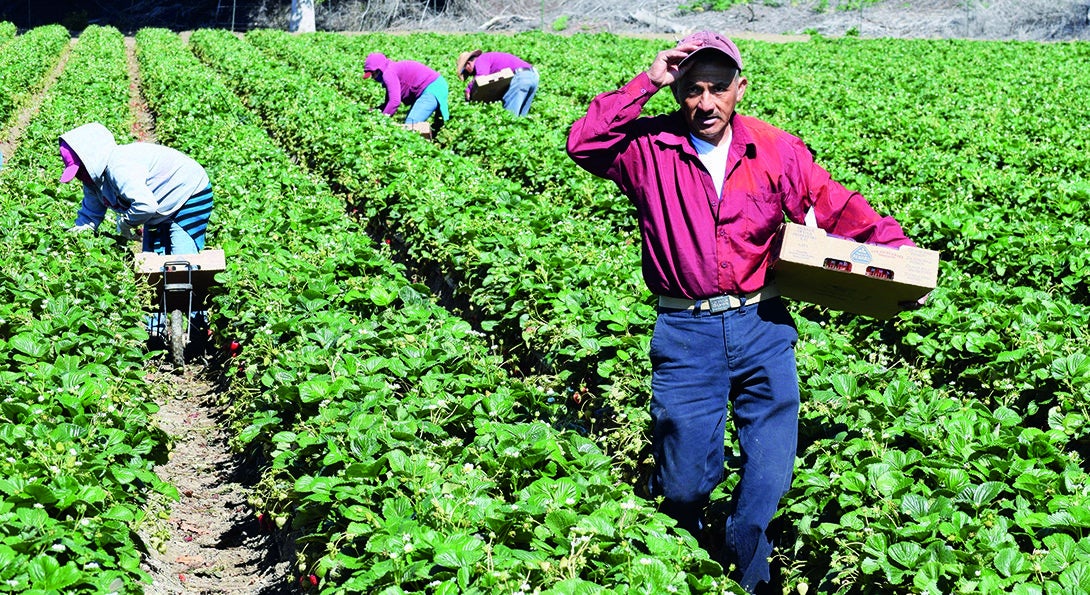
This project brings together efforts across the United States, Germany and the Netherlands. Co-led by SPH’s Linda Forst, MD, Senior Associate Dean, the project will:
- assemble policy documents, news media, and public health surveillance data to inform the scope of the problem (migrant labor in the food supply chain during a pandemic)
- build a list of government agencies, non-governmental orgnazations, labor unions, worker centers, federally qualified health centers and explore the communication network among them
- adapt the Netherlands interview guide for the various “actors” (government agencies, NGOs, employers, worker advocates, workers) in preparation for seeking funding for a larger study.
Forst’s work in the U.S. includes consulting with Illinois government agencies and food supply chain employers during the COVID-19 pandemic to inform guidance documents protecting immigrant workers in agriculture, meatpacking and restaurant settings. These workers may live in congregate housing with shared transportation to work, putting them at increased risk of contracting and spreading COVID-19 among co-workers and communities. Forst is also working with NGOs and federally qualified health centers that reach out to migrant farmworkers and immigrant temp workers around public health measures to reduce the spread of COVID-19.
Similar work is taking place at Radboud University in the Netherlands in collaboration with Rhine Waal University in Germany. Co-investigator Tesseltje de Lange is leading a project to explore risks for labor migrants during the COVID-19 pandemic. She is conducting a policy analysis with colleagues at Rhine Waal University, public and private sector actors, workers and employers to catalogue immigration and labor policies in general and during the COVID-19 pandemic and how these have impacted immigrant workers in the meatpacking industry.
Evaluating the implementation outcomes of the roll-out of a comprehensive cervical cancer screen and treat program in two rural Senegal regions
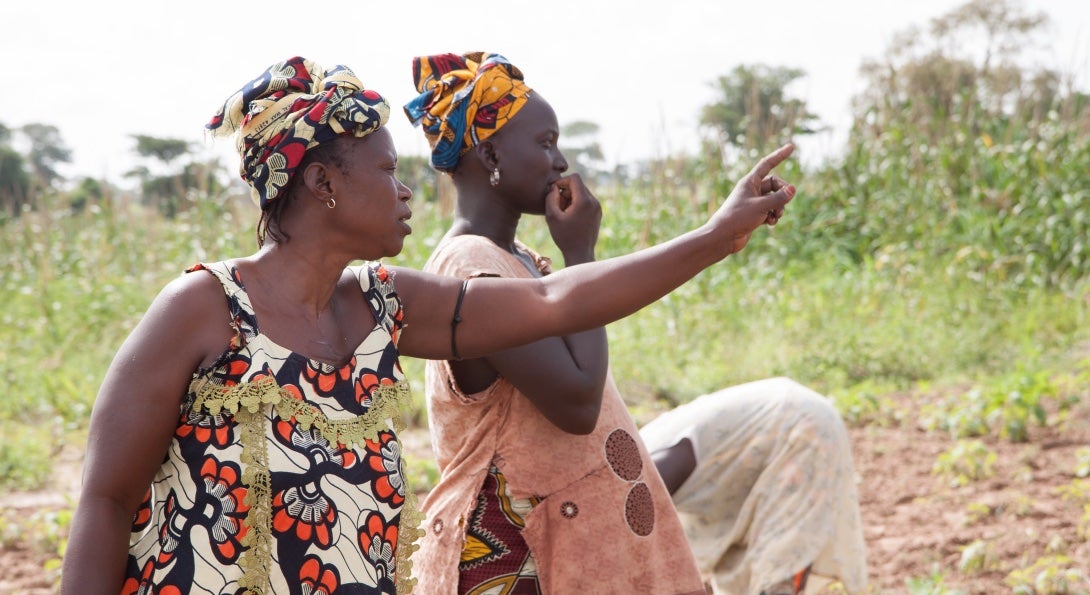
Due largely to low utilization of cervical cancer screening services, Senegal ranks 17th in the world for cervical cancer incidence. In 2018 Senegal finalized the Senegal National Standards and Protocols for the Screening of Precancerous Lesions of the Uterine Cervix. Through a Training of Trainers model, a cervical cancer screen and treat (CCST) program funded by Rotary International consisted of trainings across two regions to build capacity among healthcare personnel (administrators, midwives, and community health workers), provide equipment to support the screen and treat activities, and implement a referral system to advanced care for positive cases.
This project, led by SPH’s Caryn Peterson, PhD, research assistant professor of epidemiology, Andrew Dykens, MD, associate professor of family and community medicine, and Omar Gassama, MD, associate professor of medicine, aims to evaluate the implementation of the CCST program in two rural Senegal regions and to assess the readiness of neighboring regions to adopt the CCST program. The multi-level mixed methods research project will engage with research partners from the University Cheikh Anta Diop to evaluate the feasibility, acceptability, appropriateness, and sustainability of the CCST program in the Tambacounda and Kedougou regions and assess the organizational context, organizational readiness, and leadership capacity of two neighboring regions to adopt the CCST program.
Exploring the nutritional impact of the COVID-19 pandemic on young children in peri-urban Peru
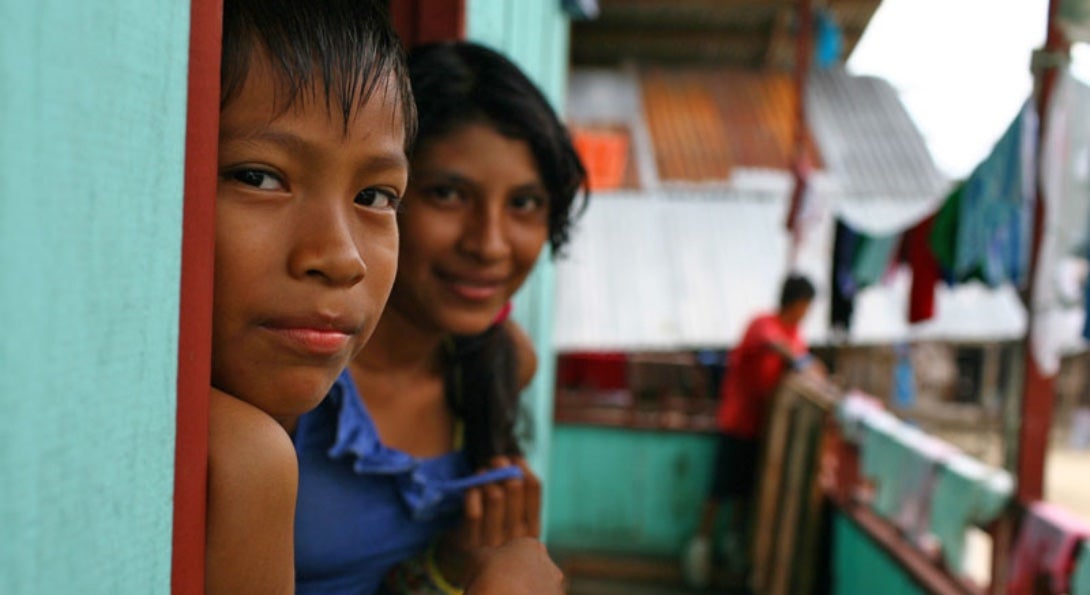
Over the past 18 months, Peru has experienced immense suffering due to the Covid-19 pandemic: strict lockdowns, social distancing measures, and loss of work in the informal sector have affected already vulnerable populations’ ability to seek healthcare services and provide nutritionally adequate food to their families.
In this study, Jessica Rothstein, PhD, Clinical Assistant Professor of Community Health Sciences, will use mixed methods to examine the nutritional consequences of the pandemic on infants and young children in peri-urban Lima.
First, 200 households with a child 6-18 months will be visited to assess food insecurity, child growth stunting, and anemia rates. Data collected will be compared to those from a previous cohort study conducted with the same communities from 2016-2019 in order to provide estimates of the effects of the pandemic on these important health indicators.
Second, caregivers from a sub-set of these households will participate in in-depth interviews to explore their experiences feeding their children and the challenges they have faced since March 2020. Interviews will consider how economic factors, food access, the healthcare system, and social assistance programs have affected child feeding practices. Together, these preliminary data will provide basis for a future grant to explore strategies for mitigating the nutritional consequences of Covid-19 and its aftershocks.
2021-22 advanced projects
Providing financial support for research projects under way.
Assessing the acceptance and political viability of a gender-neutral HPV vaccine program among multi-level stakeholders in French-speaking West Africa
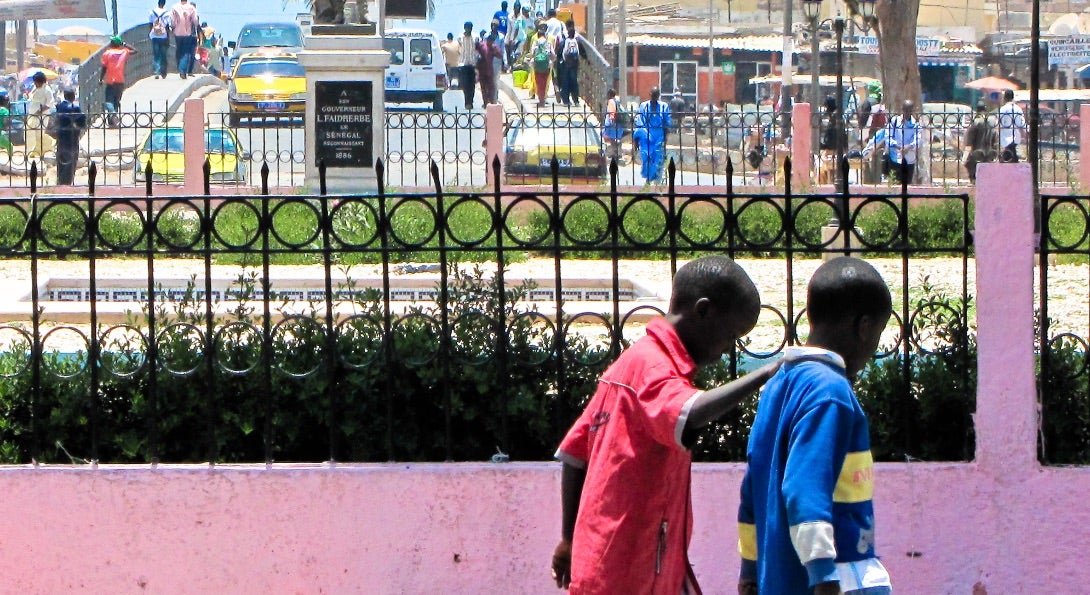
Cervical cancer is the fourth most common cancer diagnosed among women and remains the leading cause of cancer death in women throughout West Africa. The French-speaking West African (FWA) countries of Guinea, Mali, Senegal, and Mauritania rank 11th, 13th, 17th, and 34th in the world in terms of cervical cancer incidence.
The World Health Organization’s (WHO) strategy for the elimination of cervical cancer includes a Human papillomavirus (HPV) vaccination target related to girls. Although boys are a secondary target, no programs in low- and middle-income countries have developed a gender-neutral approach to HPV vaccination similar to those in high-resource settings.
This project, led by Caryn Peterson, MS, PhD, research assistant professor of epidemiology; Andrew Dykens, MD, MPH, associate professor of family and community medicine; and Adama Faye, MD, MPH, PhD, University of Cheikh Anta Diop, Institute of Health and Development, aims to assess the acceptability of HPV vaccination for boys among stakeholders at multiple levels and determine the political viability of introducing a gender-neutral HPV vaccination program at the Ministry of Health level in FWA. By investigating the barriers and facilitators to vaccination for boys among key stakeholders they hope to inform the future implementation of HPV vaccination of eligible males in FWA and further inform the WHO’s evolving HPV vaccination recommendations for vulnerable target populations.
Surveillance of SARS‑CoV‑2 in wastewater and surface water in Kisumu County, Kenya
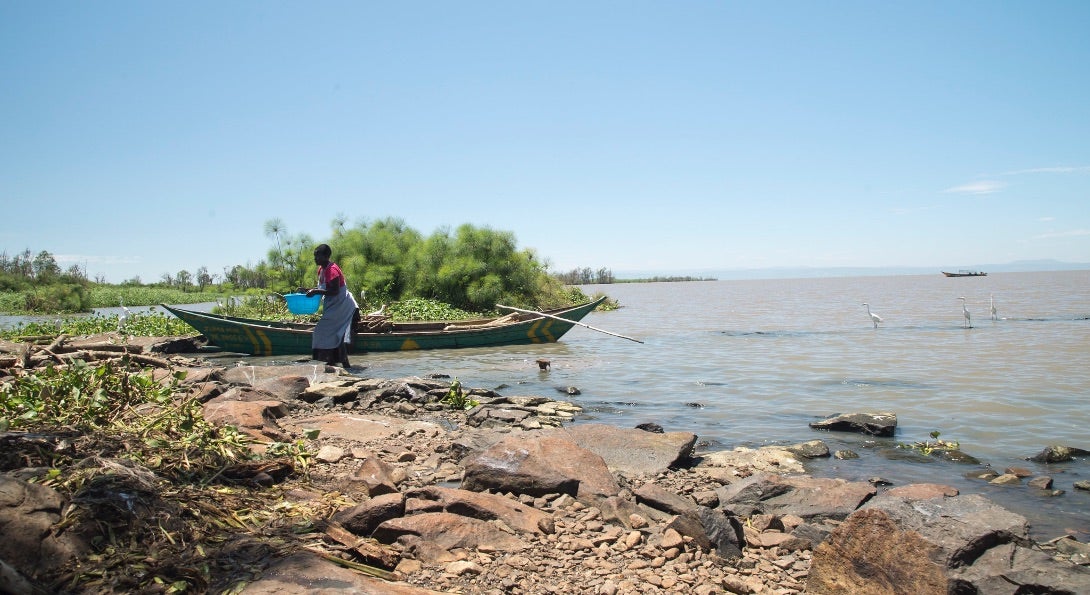
The goal of this research is to pilot and evaluate the monitoring of SARS-CoV-2, the virus that causes COVID-19, in wastewater and contaminated surface waters in low-resource communities in Kisumu County, Kenya. Led by Abhilasha Shrestha, PhD ’19, MPH ’13, research assistant professor of environmental and occupational health sciences, the project will share results with local public health authorities, which face numerous challenges in estimating the true disease burden of COVID-19 in their communities.
COVID-19 surveillance data, which relies mainly on testing symptomatic individuals in communities, substantially underestimates the true number of infected cases, particularly in rural areas. In Chicago, we have found that SARS-CoV-2 RNA can be detected in wastewater in areas thought to have low numbers of prevalent COVID-19 cases.
Because clinical testing for COVID-19 in Kenya is far more limited than that in Chicago, researchers expect to be able to identify communities that should receive targeted local support for COVID-19 control based on the results of wastewater testing.
2020-21 projects
Learn more about our projects.
Understanding sources of water pollution
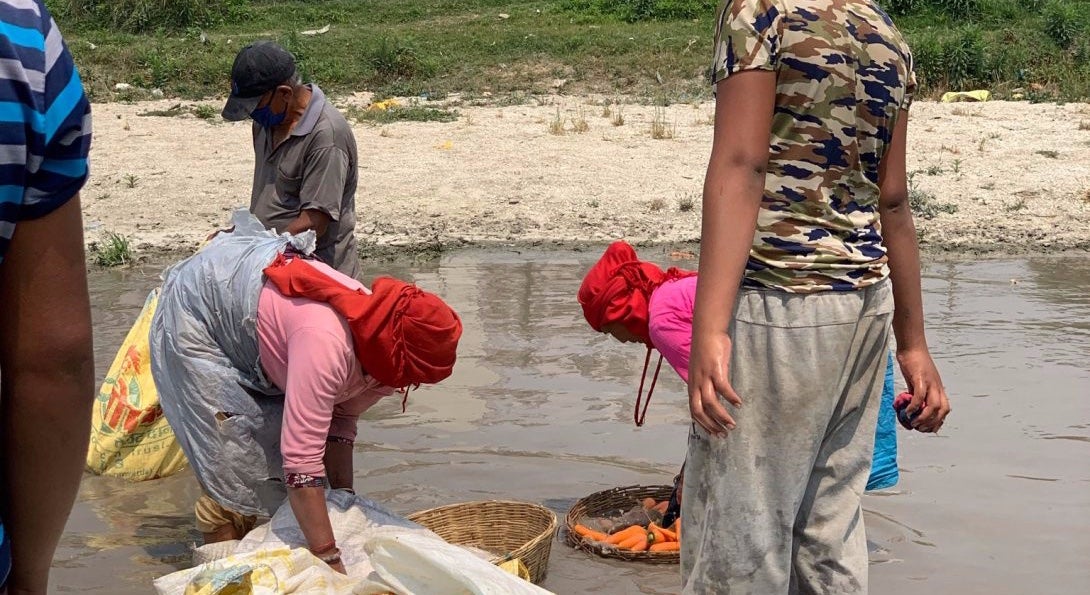
In low- and middle-income countries (LMIC), lakes and rivers used as sources of drinking water are often heavily contaminated by human and animal fecal pollution. This pollution results in waterborne infections, mainly in children, which can range in severity from mild to life-threatening. This project, led by Abhilasha Shrestha, PhD, research assistant professor of environmental and occupational health sciences, aims to build understanding of the diversity of microbes in those waters to better identify and control the sources of fecal contamination.
While this work is easily accomplished in molecular laboratories in high income countries, few labs in LMIC have high tech equipment required to amplify microbial DNA or systems for sequencing DNA. Currently, water samples must be frozen during transport to molecular labs in other countries in order to preserve the microbial DNA. Public health-related environmental microbiology in LMIC could advance significantly if simple methods were available to preserve microbial DNA without a need to keep it frozen in transit to a molecular lab.
This project will evaluate a novel method for preserving DNA of waterborne microbes from polluted waters in LMIC using a novel method that does not require refrigeration, transporting the samples to our laboratory at UIC and subsequently analyzing bacterial DNA in the samples. This method should be useful in waterborne outbreak investigations and in identifying sources of fecal pollution in surface waters.
Diet and youth intestinal microbiome
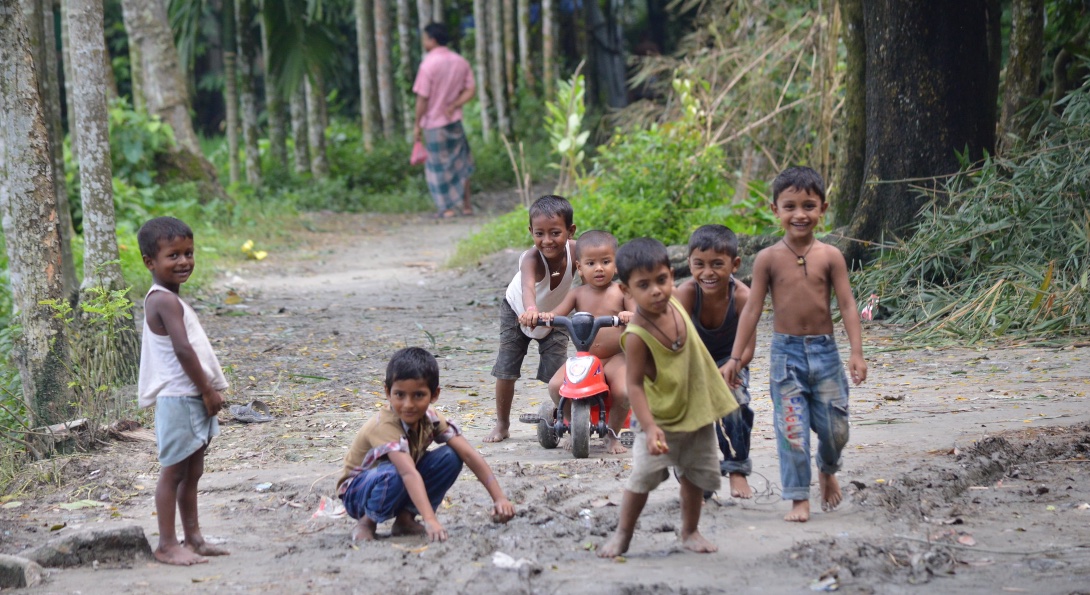
Stunting affects nearly 40 percent of children ages 5 years and younger in low and middle income countries (LMICs), increasing risk of early childhood mortality, morbidity and impaired cognitive development, with long term consequences for health and human capital.
The characteristic maturation of the intestinal microbiome over the first two years of life supports healthy growth and development. The extent to which the intestinal microbiome contributes to stunting and inhibits response to nutritional interventions is unknown.
In a pilot study, Rebecca Campbell, PhD, assistant professor of epidemiology and biostatistics, is sequencing microbial DNA in banked stool samples from children in a randomized controlled trial of food supplementation in Bangladesh to investigate microbiota diversity and maturity in relation to treatment group and stunting status.
Recently completed microbial sequencing is being incorporated into analyses of the intestinal microbiota in relation to supplementation and growth. Findings will be submitted for publication and insights will inform a future grant to link microbiota maturation and food supplementation with early childhood growth and development in a large study sample.
HIV interventions for people with low literacy
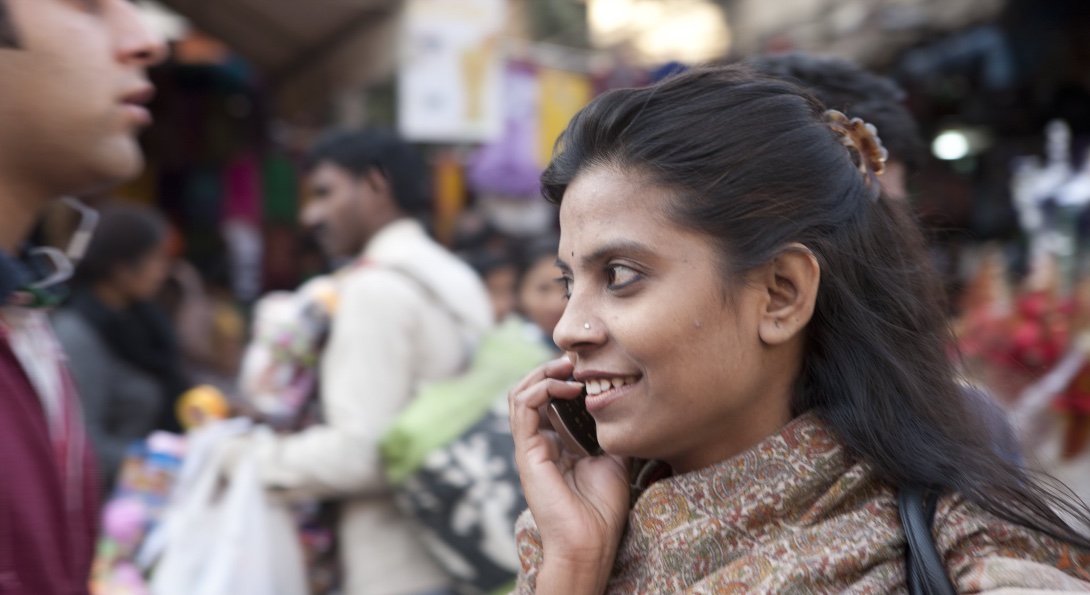
My Personal Health Guide is designed to promote HIV medication adherence and retention in care in young African American men who have sex with men. However, it has many features that can be translated to a general audience for low and middle-income countries.
This project, guided by Mark Dworkin, MD, professor of epidemiology and biostatistics, will begin the process of making it more generalizable to populations outside the United States. Translation will involve modification so that it may be used on a tablet or computer in addition to a mobile phone and language translation of spoken health educational dialogue. In-depth interviews with low-literacy patients will epxlore acceptability and feasibility of the translated app. The work is being done in collaboration with SHARE-India.
Undiagnosed HIV cases and COVID
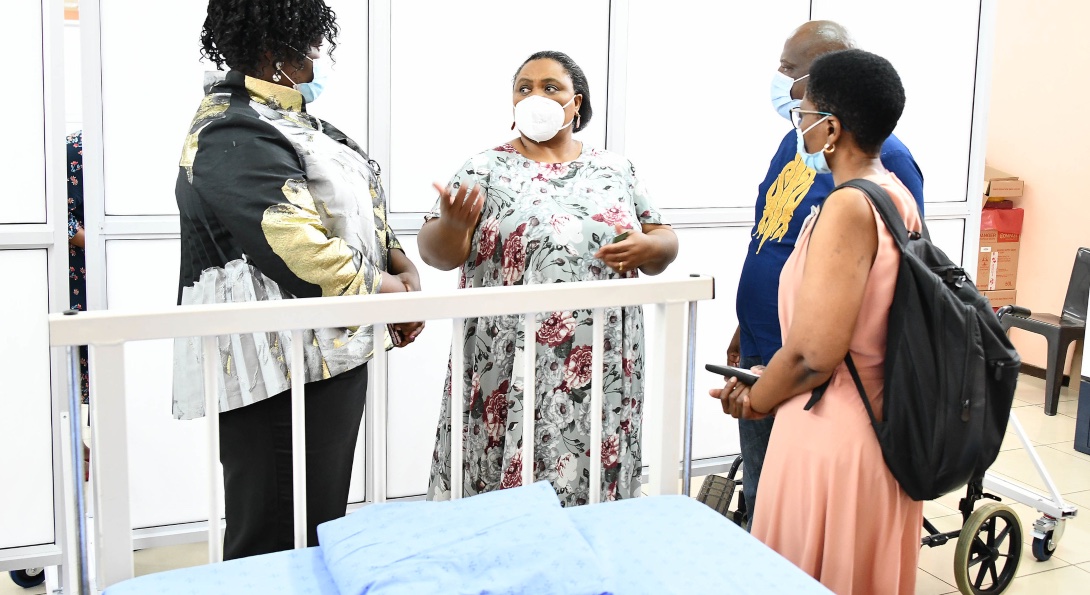
It is plausible that the COVID-19 pandemic has caused people to markedly change their sexual and drug use-related risk behaviors. Changes initiated with an intention of reducing risk of COVID-19 infection (such as reduction in number of sex partners or isolated drug use) could have an impact not only on risk of contracting and/or spreading COVID-19, but also on risk of HIV infection and/or transmission.
Led by Leslie Williams, PhD, assistant professor of community health sciences, this application will add COVID-19 antibody testing to an SPH-funded randomized trial of two versions of a social network-based HIV case-finding intervention that will be conducted in collaboration with colleagues at Human Sciences Research Council in the KwaZulu-Natal province of South Africa. COVID-19 antibody testing among our social network-based sample will also allow us to contribute to understanding of how COVID-19 moves through HIV risk networks and social networks and shed light on COVID-19 epidemiology in this understudied, resource-limited rural area.